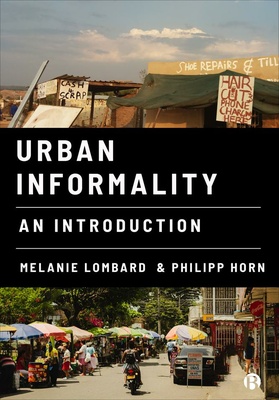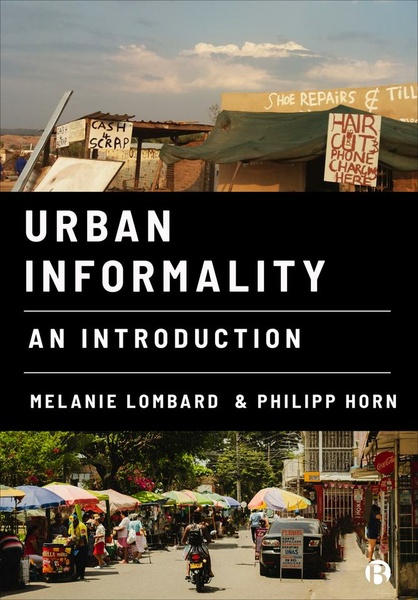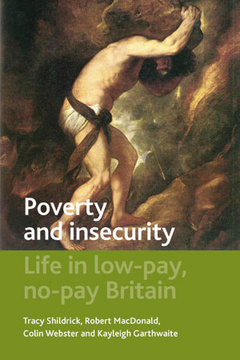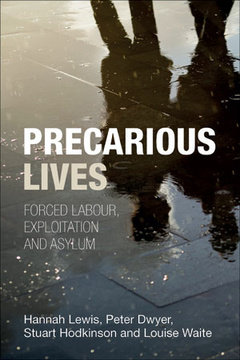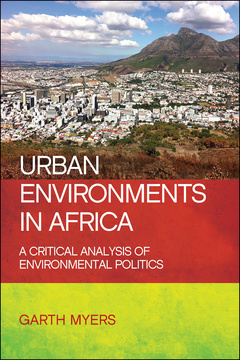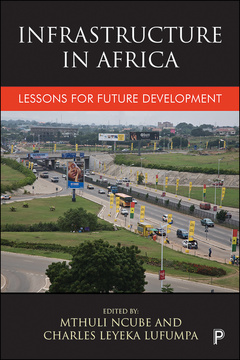Published
Jun 25, 2024Page count
224 pagesISBN
978-1529219173Dimensions
244 x 170 mmImprint
Bristol University PressPublished
Jun 25, 2024Page count
224 pagesISBN
978-1529219166Dimensions
244 x 170 mmImprint
Bristol University PressPublished
Jun 25, 2024Page count
224 pagesISBN
978-1529219180Dimensions
244 x 170 mmImprint
Bristol University PressPublished
Jun 25, 2024Page count
224 pagesISBN
978-1529219180Dimensions
244 x 170 mmImprint
Bristol University PressThis book is the first to provide an introductory overview to the concept of ‘urban informality’, taking an international perspective across the global North and South. It explores theoretical understandings of the term, and looks at how it affects ways of living, such as land use, housing and basic services, working lives and politics.
Using a broad range of material to bring the topic to life, including non-conventional sources – such as fiction, poetry, photography, interviews and other media – the book helps students, practitioners and scholars develop learning and research on this topic. The book also includes interjections from diverse voices of practitioners, community activists and regional experts.
“A welcome, well-written and well-structured review of the needs and priorities of those living, working and governing informally in a world beset by crisis.” David Satterthwaite, International Institute for Environment and Development (IIED)
“This textbook addresses a real gap by providing an accessible overview of discussions on urban informality. It is a valuable resource for teaching and learning about a contemporary complex phenomenon.” Mara Nogueira, Birkbeck, University of London
‘This is a visionary 21st century book. Its impressive coverage of urban informality, looking backwards and forwards, makes it unique. It is superbly accessible, so essential reading for academics and practitioners alike.’ Caroline Moser, University College London and University of Manchester
Melanie Lombard is Senior Lecturer in the Urban Studies and Planning Department at University of Sheffield, UK. Her research explores aspects of urban informality, relating particularly to housing, land and place, through a focus on urban residents’ everyday constructive activities, in cities in Latin America, Africa and the UK. She has published widely in journals and contributed chapters to several edited collections.
Philipp Horn is Senior Lecturer in the Department of Urban Studies and Planning at the University of Sheffield, UK. His research focuses on inclusive urban development, indigenous urbanization, youth rights, and participatory planning in the global South, with a regional focus on Latin America. He has published numerous journal articles, books, book chapters and working papers.
1. Introduction: The Global Significance of Urban Informality
2. Understanding Urban Informality
3. Living Informally
4. Working Informally
5. Governing Informally
6. Responses to Living Informally
7. Responses to Working Informally
8. Emerging Alternatives
9. Conclusion: For Trans-local, Multi-Voice Understandings of Urban Informality







